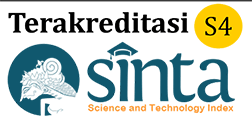Implementation of Smart Tourism using a 360° Virtual Tour at Belalang Adventure Batam
DOI:
https://doi.org/10.32815/jitika.v19i2.1075Keywords:
360 virtual tour, belalang adventure batam, smart tourism, tourism digitalizationAbstract
The growth of smart tourism, particularly through 360° virtual tour (VT360°) technology, presents an effective promotional strategy in the period following the COVID-19 pandemic. This approach is especially suitable for outdoor tourist destinations that seek to engage with a global audience. This research was specifically conducted to design and put into practice VT360° technology at Belalang Adventure in Batam. The main goals were to increase the availability of information for potential visitors and improve the location's appeal to foreign tourists, who often research destinations online before traveling. This study employed a Research and Development (R&D) method, which included systematic stages of initial observation, capturing high-quality images with Google Street View, editing the photos with Adobe Lightroom, and building the final virtual tour on the Theasys platform. The outcome is a fully interactive virtual tour that highlights key points of interest, including the main entrance, the ticket counter, and various game areas, all of which can be conveniently accessed online from any device. This digital tool has proven to be an effective and low-cost method for tourism promotion. It also shows the considerable potential for small and medium-sized tourism businesses to use immersive technology to reach a wider market. Based on these findings, this study recommends forming collaborations with tour operators, local tour guides, and hotels to broaden the distribution of the virtual tour, making it a central part of a more extensive and combined promotional strategy.
Downloads
References
Akhsani, R., Ismanto, I., & Kholil, Moch. (2023). Penerapan Teknologi Virtual Tour untuk Pengembangan Media Promosi Kampus Berbasis Web. Generation Journal, 7(2), 133–140. https://doi.org/10.29407/gj.v7i2.20069
Ayuni, N. D., & Juhana, A. (2025). Analisis Pemanfaatan Metaverse Dalam Perspektif Industri Kreatif dan Sosial. Jurnal Ilmiah Teknologi Informasi Asia, 19(1), 8–12. https://doi.org/10.32815/jitika.v19i1.977
BPS Batam. (2024). Wisatawan Mancanegara Ke Kota Batam Menurut Kebangsaan 2010 - 2024. https://Batamkota.Bps.Go.Id/Indicator/16/91/1/01-Wisatawan-Mancanegara-Ke-Kota-Batam-Menurut-Kebangsaan.html
Budi, R. B. N., & Wenas, M. B. (2018). Perancangan Virtual Tour Kampus I UKSW sebagai Media Informasi Mahasiswa Baru. ANDHARUPA: Jurnal Desain Komunikasi Visual & Multimedia, 4(01), 51–65. https://doi.org/10.33633/andharupa.v4i01.1562
Dafitri, H., Rismayanti, & Asri Tamara. (2023). Pengembangan Media Pembelajaran Pengenalan Jenis Warna Pada Anak Dengan Metode Research and Development Berbasis Android. Jurnal Komputer Teknologi Informasi Dan Sistem Informasi (JUKTISI), 2(2), 409–415. https://doi.org/10.62712/juktisi.v2i2.121
Fahlevi, R., Putra, M. Z. D., Sinambela, F. A., & Ingakadijaya, R. (2024). Niat Berkunjung Kembali oleh Wisatawan pada Destinasi Wisata Kampung Vietnam . Jurnal Ekonomi Pembangunan STIE Muhammadiyah Palopo, 10(2), 388. https://doi.org/10.35906/jep.v10i2.2162
Fatma, Y., Hayami, R., Budiman, A., & Rizki, Y. (2019). Rancang Bangun Virtual Tour Reality Sebagai Media Promosi Pariwisata di Propinsi Riau. Jurnal FASILKOM, 9(3), 1–7. https://doi.org/10.37859/jf.v9i3.1666
Hariyanto, O. I. B., & Dewi, S. (2023). Nilai dan Kualitas serta Kepuasan Terhadap Minat Berkunjung Kembali ke Mall di Kota Batam. Journal of Economic, Management, Accounting and Technology, 6(1), 137–150. https://doi.org/10.32500/jematech.v6i1.4192
Hattori, K. (1991). What’s virtual reality? (人工現実感の世界). Kōgyō Chōsakai (工業調查会).
Isaghoji, S., & Par, M. (2024). Optimasi Fasilitas Taman Kota Sebagai Daya Tarik Wisata Outdoor. AE Publishing.
Kim, M. J., & Hall, C. M. (2019). A hedonic motivation model in virtual reality tourism: Comparing visitors and non-visitors. International Journal of Information Management, 46, 236–249. https://doi.org/10.1016/j.ijinfomgt.2018.11.016
Koroll, R. S. (2022). Leisure Activities In The Outdoors: Learning, Developing And Challenging (Mandi Baker, Neil Carr, & Emma J. Stewart, Eds.). Oxfordshire.
Latifah, A., & Antika, D. (2025). Penerapan Virtual Tour 360 Derajat Sebagai Media Informasi Yayasan Al-Musaddadiyah Garut. Jurnal Algoritma, 22(1), 701–712.
Lavalle, S. M. (2023). Virtual Reality. Cambridge University Press.
Leveau, P., & Camus, et S. (2023). Embodiment, immersion, and enjoyment in virtual reality marketing experiences. Psychology & Marketing, 40(7), 1329–1343. https://doi.org/10.1002/mar.21822
Nielsen, J. (1993). Usability Engineering. Academic Press, Inc., Harcourt Brace.
Pestek, A., & Sarvan, M. (2021). Virtual reality and modern tourism. Journal of Tourism Futures, 7(2), 245–250. https://doi.org/10.1108/JTF-01-2020-0004
Prambayun, A., Oktaviany, D., & Achmad, Y. F. (2022). Analisis Potensi Virtual reality sebagai Strategi Pemasaran Pariwisata Kota Pagar Alam. JATISI (Jurnal Teknik Informatika Dan Sistem Informasi), 9(3), 2641–2651. https://doi.org/10.35957/jatisi.v9i3.1341
Rodrigues, A., & Cheiran, J. F. P. (2020). Virtual look around: interaction quality evaluation for virtual tour in multiple platforms. 2020 22nd Symposium on Virtual and Augmented Reality (SVR), 47–56. https://doi.org/10.1109/SVR51698.2020.00023
Safitri, E. A., Supardi, S., & Rumba, R. (2024). Pengembangan Paket Wisata Outbound di Desa Wisata Hijau Bilebante Lombok Tengah. Juremi: Jurnal Riset Ekonomi, 3(6), 859–868. https://bajangjournal.com/index.php/Juremi/article/view/7697
Safitri, W., & Mulyono, A. (2022). Manajemen Outbound Taman Wisata Matahari Di Cisarua Kabupaten Bogor tahun 2020. Indonesian Journal for Physical Education and Sport, 3(1), 68–78. https://doi.org/10.15294/inapes.v3i1.47938
Simbolon, S. O., Lubis, A. L., & Wibowo, A. (2023). Strategi SWOT Untuk Mengembangkan Potensi Destinasi Wisata Pantai Melayu di Kota Batam. Pariwisata Budaya: Jurnal Ilmiah Pariwisata Agama Dan Budaya, 8(2), 190–204. https://doi.org/10.25078/pariwisata.v8i2.3067
Sugiyono, S. (2021). Metode penelitian kuantitatif kualitatif dan R&D (2nd ed.). Afabeta.
Yang, T., Lai, I. K. W., Fan, Z. Bin, & Mo, Q. M. (2021). The impact of a 360° virtual tour on the reduction of psychological stress caused by COVID-19. Technology in Society, 64, 101514. https://doi.org/10.1016/j.techsoc.2020.101514
Zimmerman, T. G., Lanier, J., Blanchard, C., Bryson, S., & Harvill, Y. (1986). A hand gesture interface device. ACM SIGCHI Bulletin, 17(SI), 189–192. https://doi.org/10.1145/30851.275628
Additional Files
Published
How to Cite
Issue
Section
License
Copyright (c) 2025 Jurnal Ilmiah Teknologi Informasi Asia

This work is licensed under a Creative Commons Attribution 4.0 International License.
Upon acceptance for publication, authors transfer copyright of their article to Jurnal Ilmiah Teknologi Informasi Asia. This includes the rights to reproduce, transmit, and translate the material in any form or medium.
While the editorial board endeavors to ensure accuracy, they accept no responsibility for the content of articles or advertisements. Liability rests solely with the respective authors and advertisers.
Website material is licensed under a Creative Commons Attribution 4.0 International License (CC BY 4.0). Under this license, users are free to share and adapt the material for any purpose, including commercial use, provided license terms are met. These freedoms are irrevocable by the licensor under such conditions.






















